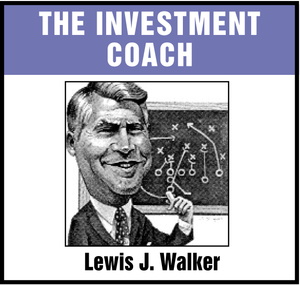In our post-2008/2009 slow growth recovery, many college graduates are unemployed or underemployed, leading some to speculate whether college is worth it. What if some of the planning for college is just plain wrong? Does the future bode ill for millions of unprepared, untrained, or misdirected job seekers?
The Futurist magazine’s “Outlook 2015: Top Trends and Forecasts for the Decade Ahead” article postulates that two billion jobs (worldwide) will disappear by 2030. The good news is that new paths are being invented to replace those jobs.
Futurist Thomas Frey says, “Among the job-inventing industries on the rise are 3-D printing, commercial drones, biofactories, personal rapid transit systems, and innovative new living and learning environments such as micro colleges and senior living solutions.”
Workplace-trends consultant Edward Gordon warns, “By 2020, three-fourths of U.S. jobs will require higher skills,” consistent with the aforementioned job-creating technologies and sectors. Higher skills mean higher pay and about 122 million workers will be needed, says Gordon, “but only 55 million will be qualified. High-order competencies are becoming the basic minimum requirement for essentially all U.S. jobs, but the absence of skills among American workers leaves up to 5 million available jobs vacant.” The talent gap in America and in other countries will grow as baby boomers retire and younger workers fail to acquire requisite skills.
In a New York Times op-ed piece entitled “Your So-Called Education,” professors Richard Arum and Josipa Roskin cited a study of thousands of college students in more than 24 diverse higher education institutions. One finding: “Large numbers of the students were making their way through college with minimal exposure to rigorous coursework, only a modest investment of effort and little or no meaningful improvement in skills like writing and reasoning.”
Acknowledging a host of distractions for today students, the professors also faulted a dearth of demanding courses.
The upshot? “A large number of the students showed no significant progress on tests of critical thinking, complex reasoning and writing that were administered when they began college and then again at the ends of their sophomore and senior years.”
A nasty economic slump faced the classes of 2008-2009, but the findings may be a factor in the unemployment and underemployment of graduates.
Parents ponder carefully the purchase of a new car or home, but often they send junior or sis off to college with a major investment in tuition and other costs without a clue as to the point of the education, and whether it fits the talent profile and the instinctive behaviors and God-given gifts of the student.
Churches, like employers, need people who can effectively carry out the mission of the organization, a quest challenged by growing needs and reliance on unpaid volunteers. Some churches have turned to a discipline outlined in material from Gallup Press, including the bestseller Strengths Finder 2.0 by Tom Rath (2007). The goal is a strengths-based organization.
What is a strength? Forget working on your weaknesses, advises Rath. Decades of research indicates that “most successful people start with dominant talent, and then add skills, knowledge, and practice to the mix.” A strength is “a powerful, productive combination of talent, skill, and knowledge.”
Maria C. Forbes is a team-building consultant in Norcross, GA (www.firepowerteams.com) , who is leading a group developing “Living Your Strengths” at St. Brigid Catholic Church in Johns Creek. Helping parishioners to identify their top five dominate strengths as a key to effective and motivated action, she said, “ I wish I had learned this when I was in college!”
Potential and current college students undergo a plethora of tests to measure academic skills, intelligence, and personality. What is missing are assessments that pinpoint instinctive behaviors and natural talents that can be developed as and focused as strengths.
Maria Forbes uses proven diagnostics and analysis to help students determine career paths where their natural talents and instinctive modalities are best employed. If a student finds success and validation through applied strength, he or she is more likely to finish in four years, and target a meaningful career path or go on to post-graduate education.
Knowing how to apply one’s instinctive behaviors and responses supplemented by strengths-based awareness applies not only to students but to anyone in any life transitions cycle. As the late business guru Peter Drucker emphasized, “Most people think they know what they are good at. They are usually wrong…And yet, a person can perform only from strength.”
The gift of understanding…priceless.
Lewis Walker is President of Walker Capital Management, LLC. Certain advisory services offered through The Strategic Financial Alliance, Inc. (SFA). Lewis Walker is a registered representative of SFA which is otherwise unaffiliated with Walker Capital Management, LLC

